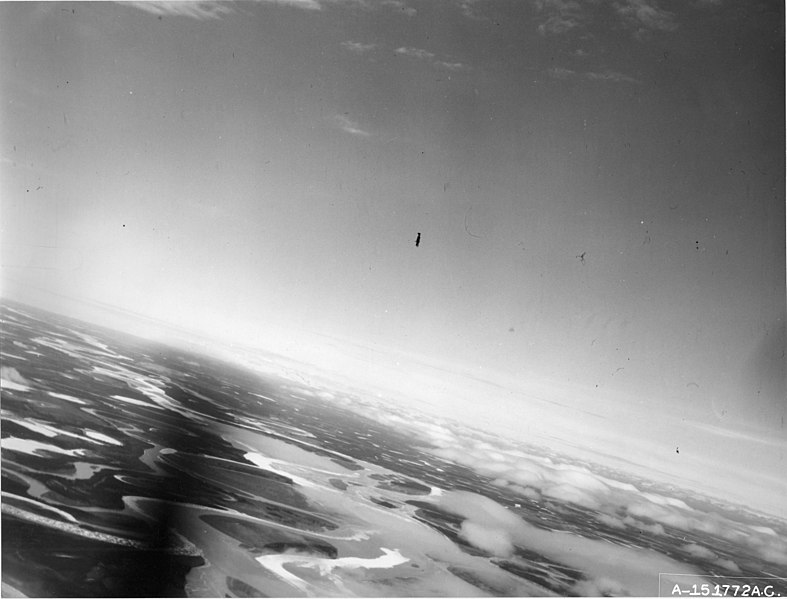
The result? The Age of Disclosure, which lands on Amazon Prime Video on Friday, 21st November. And honestly, the timing couldn't be more interesting.
We've all seen countless UFO documentaries over the years—grainy footage, anonymous witnesses, plenty of speculation. Farah's film takes a markedly different approach. Every single one of his 34 interviewees is a current or former senior member of the U.S. government, military, or intelligence community. We're talking Secretary of State Marco Rubio, Senator Kirsten Gillibrand, former Director of National Intelligence James Clapper, and Jay Stratton, who actually ran the government's UAP Task Force.
These aren't anonymous sources hiding in shadow. These are people putting their names, faces, and reputations on the line.
The documentary's central claim is bold, to put it mildly: that there's been an 80-year global cover-up of non-human intelligent life, and that major nations are secretly racing to reverse-engineer technology of non-human origin. It's the sort of thing that would have got you laughed out of the room a decade ago. But then again, the landscape around UAP disclosure has shifted dramatically in recent years.
What's particularly striking is how the film arrives at a moment when UAP transparency has genuine bipartisan support in Washington. The UAP Disclosure Act, sponsored by figures from both sides of the aisle including Chuck Schumer and Marco Rubio, passed the Senate before being blocked by what many describe as special interest groups. That's not conspiracy theory territory—that's documented legislative history.
Farah himself has noted that none of the government leadership he spoke with are debating whether this is real anymore. The questions have moved on to where these phenomena come from, who controls them, and what their purpose might be. It's a subtle but significant shift in the conversation.
And it's not just the documentary making waves. Recent pledges from political figures regarding UAP transparency suggest that the pressure for answers isn't going away anytime soon. Whether that translates into actual disclosure remains to be seen, but the machinery is certainly in motion.
The film premiered at SXSW back in March to what can only be described as mixed reviews—though perhaps not in the way you'd expect. IndieWire called it "really, really convincing," while The Hollywood Reporter's Daniel Fienberg was rather more cutting, describing it as "a basic cable exploitation doc done up with a fancy gloss."
The common thread in most reviews? The production values are exceptional, the sources are undeniably credible, but ultimately, as one critic put it, it presents "the most convincing argument you can make without showing any actual evidence." That's the rub, isn't it? Testimonies, however credentialed, aren't the same as proof.
Still, when Jay Stratton—the man who literally directed the government's UAP Task Force—says on camera that he's seen non-human craft and non-human beings with his own eyes, it does give one pause.
With the release of the documentary now behind us, we're left with the question, "Did it actually reveal anything new?".
Farah isn't the only major Hollywood figure turning attention to this subject. Spielberg himself has reportedly been circling back to UFO-related projects, which raises interesting questions about whether the entertainment industry knows something the rest of us don't—or whether they're simply capitalising on a cultural moment.
Either way, it's worth noting that Farah's trailer racked up over 20 million views when it dropped in January. That's not fringe interest. That's mainstream attention.
One of the documentary's strongest elements is its focus on the legislative efforts around UAP disclosure. The bipartisan congressional hearings of the past couple of years have brought whistleblowers and former officials to Capitol Hill to make extraordinary claims under oath. The film contextualises these efforts, showing how figures in Congress are actively pushing for answers.
Congressional pressure continues to mount, with representatives demanding the release of classified materials. Whether those efforts bear fruit is another matter entirely, but The Age of Disclosure positions itself as part of that broader push for transparency.
Farah has been quite candid about his hopes for the film. He believes President Trump could be the first sitting president to publicly acknowledge non-human intelligence—calling it potentially "the biggest moment a leader can possibly have." That's a bold prediction, and one that many will greet with considerable scepticism.
But here's what's undeniable: the conversation has shifted. Senior government officials are speaking openly about UAPs. Legislation is being proposed. And now, a major documentary with serious Hollywood backing is bringing these claims to a global audience via Amazon Prime.
Whether you come away from The Age of Disclosure convinced or sceptical, it's increasingly difficult to dismiss the subject as mere conspiracy theory. Too many credible people are saying too many similar things.
The documentary releases on 21st November 2025 with an Oscar-qualifying theatrical run in New York, Los Angeles, and Washington D.C., alongside its global streaming debut on Amazon Prime Video. At just under two hours, it's a substantial watch, but given the weight of its claims, that seems rather appropriate.
Is it the smoking gun that UAP researchers have been waiting for? Probably not. But as a snapshot of where we are in the disclosure conversation—with high-ranking officials going on record in unprecedented numbers—it's essential viewing for anyone following this story.
The truth, as they say, is out there. Whether Dan Farah's film brings us any closer to it is something you'll have to judge for yourself.
What do you think—is The Age of Disclosure a turning point for UAP transparency, or just another documentary making extraordinary claims? Share your thoughts in the comments below.
